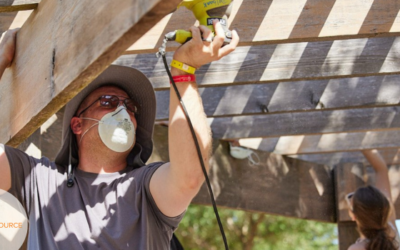You can download a PDF of Bible Study: Zapping Zip-Code Christianity. If you use it, let us know in the comments!
Purpose of This Study
The purpose of this study is to help participants better understand and appreciate how Jesus reached out to people of various demographics during his ministry on earth, breaking down barriers and ignoring “demographically correct” expectations in order to share his healing love and forgiving grace with everyone in need. As stated in the introduction (see below), “Our goal is to grow in our understanding and appreciation of Christ’s love for all people, and to learn from Jesus how to model this love in our own personal lives and relationships and in our joint efforts to be ‘barrier-busters’ for Christ.”
Sessions and Primary Bible Texts
Session One: Breaking Through the Culture Barrier (John 4:1-29)
Session Two: Reaching Across Social and Economic Barriers (John 5:1-17)
Session Three: Bridging the Generational Barrier (Assorted Texts)
Session Four: Confronting Lifestyle Barriers (Luke 7:36-50)
Leader’s Guide
Three vital keys to leading any Bible study effectively (with the help of God’s Spirit) are prayer, preparation and personalization.
Don’t skip the first one or take it for granted: PRAY! Pray for yourself–that God will give you the insight, confidence, and sensitivity you need to help participants grasp the amazing, life-changing truths of God’s Word that this study seeks to convey. Pray for participants before, during, and after the study, that God would open their hearts and minds to grasp these truths by the power of his Spirit and be challenged and transformed by them. Pray for members of your congregation, that they too would be impacted by the witness of the young people participating in this study as they catch the vision of what it means to be “barrier-busters” for Christ. Also pray for the people in your community who, by God’s grace, may be touched by this study as participants and congregational members are moved by God’s Spirit to reach out with renewed zeal to various demographic groups in your area and beyond.
Don’t skip the second key either, or take it for granted: PREPARE! Each of the studies contains quite a bit of helpful background and commentary on the Bible passages under discussion, but it is assumed that the leader will spend time reading and reflecting on these texts beforehand with the help of additional resources (such as a Concordia Self-Study Bible and/or other commentaries). Several of the studies contain “Bible quizzes” on the primary Scripture texts. In most cases, the answers are fairly obvious, but they are also provided at the end of the session. Based on your own study of the primary and secondary texts, you will want to be ready to offer additional insights and to answer questions (as best you can) that may arise in class. Try not to get bogged down in tangential details; however, keep the focus on the primary purpose of the study, which is to show how determined Jesus was to share his love and care with people of various (and very different!) demographic groups.
Since not all young people may be familiar with the term or concept of “demographics,” an Introduction has been provided to help participants get a feel for what this study is all about. It is strongly suggested that this Introduction be used as a part of the Bible study itself, either as a lead-in to Session One or as an introductory session of its own. If you have access to the internet in the location where the study takes place, consider spending some time as a group browsing the site referred to in the Introduction (and/or similar sites) for information about the specific demographics of your community. (This information could also be downloaded beforehand and distributed to the group.) This will not only help members of the group get a better grasp of what “demographics” is all about, it will also help them understand how the truths shared later in the study apply to the particular community in which they live. End each study the way you started–in prayer. Ask God to help those involved in the study to grasp more fully and deeply the seeking and welcoming love of Christ for them and for all people, and to refl ect that love in their own lives and witness for Christ.






0 Comments